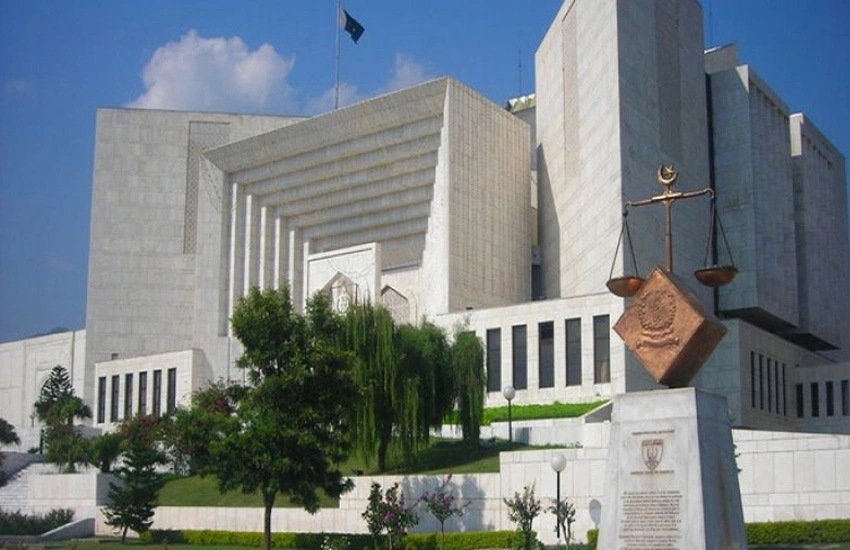- Web Desk
- Feb 19, 2026
Military trials hearing: SCBA maintains that civilians cannot be tried in military courts
-

- Web Desk
- Mar 06, 2025

ISLAMABAD: The Supreme Court on Friday resumed hearings on the government’s appeal challenging the annulment of civilian trials in military courts, with a seven-member constitutional bench led by Justice Aminuddin Khan overseeing the proceedings. The Supreme Court Bar Association (SCBA) has submitted its written arguments, maintaining that civilians should not be tried in military courts.
The SCBA contended that previous judicial rulings had upheld provisions of the Army Act, asserting that the law’s sections could not be deemed unconstitutional. During the hearing, Lahore High Court Bar’s counsel Hamid Khan continued his arguments.
Lawyer Hamid Khan referenced the tenure of former Chief Justice Umar Ata Bandial, to which Justice Jamal Mandokhail remarked that old narratives would not be highlighted. Justice Mandokhail stressed that the central question before the court was whether civilians could be tried under military jurisdiction so one should not deviate.
Military trials hearing: Those who are guilty should be punished, says Justice Mandokhail
Hamid Khan then elaborated on the legislative history of the Army Act, stating that it was introduced in May 1952 under the Government of India Act, while Pakistan’s first constitution, which introduced fundamental rights, came in 1956. He also highlighted that the first amendment to the Army Act was made in 1967, at a time when the country was facing internal unrest, particularly in East Pakistan.
Drawing historical parallels, Hamid Khan cited various incidents, including the 1951 Rawalpindi Conspiracy Case, the 1967 Agartala Conspiracy Case, and the 1953 anti-Ahmadi riots in Lahore, during which martial law was imposed: “Despite the involvement of both civilians and military personnel in the Rawalpindi Conspiracy, the trial was conducted under a special tribunal rather than a military court.”
Justice Mandokhail questioned whether the Army Act was in effect in 1951, to which Hamid Khan responded that Pakistan was then governed under the 1911 Military Act. Justice Muhammad Ali Mazhar further inquired whether the special tribunal for the Rawalpindi case was established solely for that trial.
Hamid Khan argued that while military courts were first formed in 1953, they were originally meant to address exceptional circumstances. He also highlighted that constitutional amendments, such as the 21st Amendment, were specifically enacted to allow military courts for a limited period of two years only.
Justice Hasan Azhar Rizvi observed that Article 270-A of the Constitution had provided legal cover for martial law actions in the past, while Justice Mandokhail pointed out that the judiciary itself had played a role in legitimising military rule.
Justice Aminuddin Khan stated that the 1973 Constitution had formally recognised past laws, but reflected that the court was currently dealing with an appeal challenging the annulment of two specific provisions under Article 8(5). He cautioned the counsel to focus on the matter at hand, stating, “Limit your arguments to this point; otherwise, we will deviate from the case.”
Following a prolonged hearing, the Supreme Court adjourned proceedings until March 10 (Monday).




